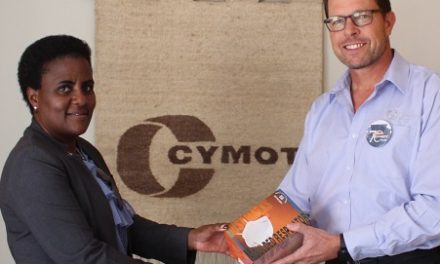
Merck supports UNAM with diabetes

Dr Stefan Oschmann and Prof Sidat Mohsin, dean of the medical school at Eduardo Mondelane University in Maputo.
Merck announced this week it has started its second year of its five-year project to provide the European Accredited Clinical Diabetes Management course for medical and pharmacy students at partner African universities through E-learning.
The pharmaceutical company said it is implementing a structured and coherent Corporate Social Responsibility strategy that includes medical education to improve diabetes healthcare in Africa. At the beginning of September 2014, Merck’s Capacity Advancement programme (CAP) kicked off its second year of the Clinical Diabetes Management programme to medical and pharmacy students at the University of Nairobi. Merck will provide the same course to medical students of Makerere University and UNAM. Every healthcare provider in these countries and the rest of Africa will have free access to all the lectures on a dedicated website (www.managediabetesonline.org) and will be able to undergo an assessment to obtain CME hours on line.
Dr Stefan Oschmann, Merck Pharma CEO said “ Merck is supporting E- Health which can definitely contribute to bringing healthcare to unserved or underserved populations; increasing the effectiveness and reducing the costs of healthcare delivery; improving the effectiveness of public health programmes and research; preventing illness and managing and treating chronic diseases.” “Merck is confident that supporting this E- learning platform for the diabetes educational programme will definitely improve the access to innovative and high quality healthcare solution and disease awareness.” Rasha Kelej, the head of Global Market Development and Business Responsibility of Merck Serono said, “Using the power of mobile and internet technologies to share information via SMS or dedicated website to healthcare providers and the general public across Africa especially in rural areas, will help to increase access to training, education and raise awareness on the issues of diabetes so that they learn to better prevent, diagnose and manage the disease.” In 2014, Merck said it aims to reach 2,000 students and rural healthcare providers so that ultimately they become diabetes ambassadors across Africa.













































